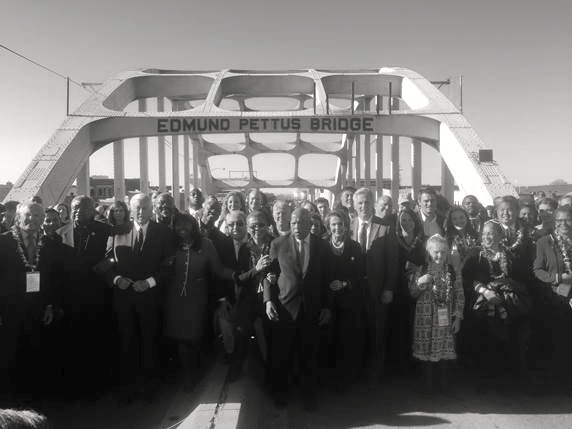Some may know Jon Meacham as a commentator on cable news. As a boomer, I tend to be a cable news junkie, and he is certainly one of my favorites. If I’m at home doing something and I know Jon Meacham is going to be coming up on one of the cable news shows, I’ll stop whatever I’m doing to listen. But his primary career is that of writer and historian, and I think one of the best. He is a Pulitzer Prize-winning author. He is one of my three favorite historical writers, with the other two being Doris Kearns Goodwin and Michael Beschloss. Jon is a lifelong Episcopalian and graduate of The University of the South, commonly referred to as Sewanee, which is a private Episcopal liberal arts college in Sewanee, Tennessee. His most recent book is His Truth Is Marching On: John Lewis and the Power of Hope.
As we approach the end of 2020, a year that most of us are glad to see end, we cannot forget the great loss of John Lewis this past year. His life not only connects us to the past and the work of the early Civil Rights movement in the 1960s, but it also calls us—challenges us—to continue forward in striving for racial justice. It is in the power of that hope that needs to lead us forward. The following description of Jon Meacham’s book gives us a glimpse into the impact John Lewis has had on our nation:
His Truth Is Marching On: John Lewis and the Power of Hope
John Lewis, who at age twenty-five marched in Selma, Alabama, and was beaten on the Edmund Pettus Bridge, is a visionary and a man of faith. Drawing on decades of wide-ranging interviews with Lewis, Jon Meacham writes of how this great-grandson of a slave and son of an Alabama tenant farmer was inspired by the Bible and his teachers in nonviolence, Reverend James Lawson and Martin Luther King, Jr., to put his life on the line in the service of what Abraham Lincoln called “the better angels of our nature.” From an early age, Lewis learned that nonviolence was not only a tactic but a philosophy, a biblical imperative, and a transforming reality. At the age of four, Lewis, ambitious to become a minister, practiced by preaching to his family’s chickens. When his mother cooked one of the chickens, the boy refused to eat it—his first act, he wryly recalled, of nonviolent protest. Integral to Lewis’s commitment to bettering the nation was his faith in humanity and in God—and an unshakable belief in the power of hope.
Meacham calls Lewis “as important to the founding of a modern and multiethnic twentieth- and twenty-first-century America as Thomas Jefferson and James Madison and Samuel Adams were to the initial creation of the Republic itself in the eighteenth century.” A believer in the injunction that one should love one’s neighbor as oneself, Lewis was arguably a saint in our time, risking limb and life to bear witness for the powerless in the face of the powerful. In many ways he brought a still-evolving nation closer to realizing its ideals, and his story offers inspiration and illumination for Americans today who are working for social and political change.

— Fr. George


